Taiwan Studies scholar Dafydd Fell says that international academic interest in the country is in a golden age despite China’s increased efforts to marginalize it.
This “golden age” may not be much to speak of when compared to China or Japan studies, but as director of the growing Taiwan Studies Program at the School of Oriental and African Studies, University of London, Fell has reason to celebrate. Last month, his Routledge Research on Taiwan Series reached its 10th anniversary, with nine out of 26 titles published over the past two years and a 27th book due in May.
“The fact that we are getting more and more book proposals and books published shows how healthy the Taiwan Studies field is,” Fell says, adding that as a subsidy-free commercial venture, academic quality is not enough as the books need to be profitable.
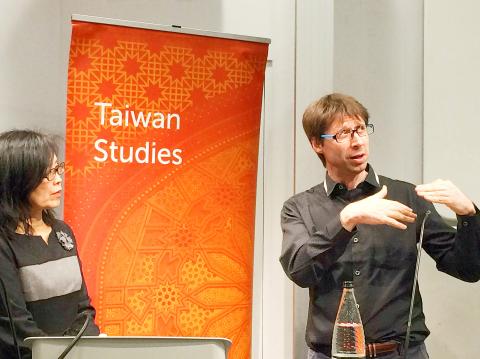
Photo courtesy of Dafydd Fell
Meanwhile, courses on Taiwan at Fell’s University of London have gone from one in 2000 to eight today, while Taiwan-related conferences and publications have increased during that period.
Lee Chun-yi (李駿怡), director of the Taiwan Studies Program at the University of Nottingham and co-editor of the series’ A New Era in Democratic Taiwan, says the recent growth of the field is encouraging despite scholars still struggling to convince people that Taiwan is a worthwhile topic distinct from China.
“It’s overthrown my stereotype that Taiwan is not attractive. We always think we’re not good enough,” Lee says.
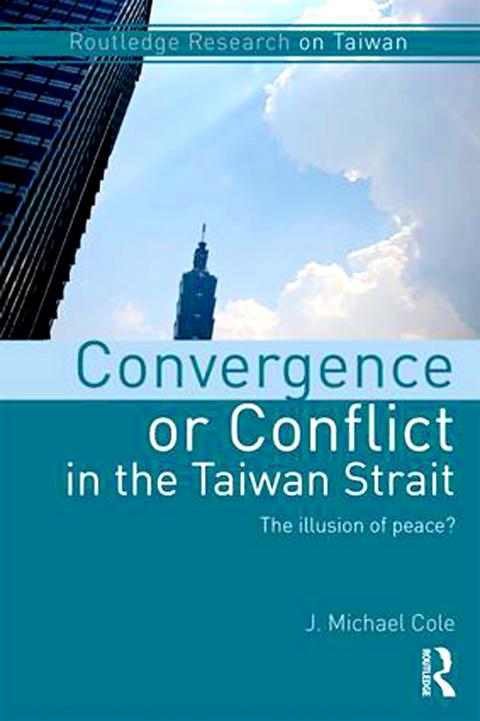
Photo courtesy of Dafydd Fell
SELLING TAIWAN
During the Cold War before China was open to Western academic study, Hong Kong and Taiwan served as a window for scholars interested in China. But as China became accessible, interest in Taiwan dwindled. When Fell returned to the UK from Taiwan in 1999, “there were no Taiwan courses, Taiwan Centers or programs, no regular conferences nor book series.”
Marc Moskowitz, an anthropologist at the University of South Carolina and editor of the Taiwan series’ Popular Culture in Taiwan: Charismatic Modernity says that, aside from exceptions such as Fell, it’s still virtually impossible to survive just as a Taiwan Studies scholar.
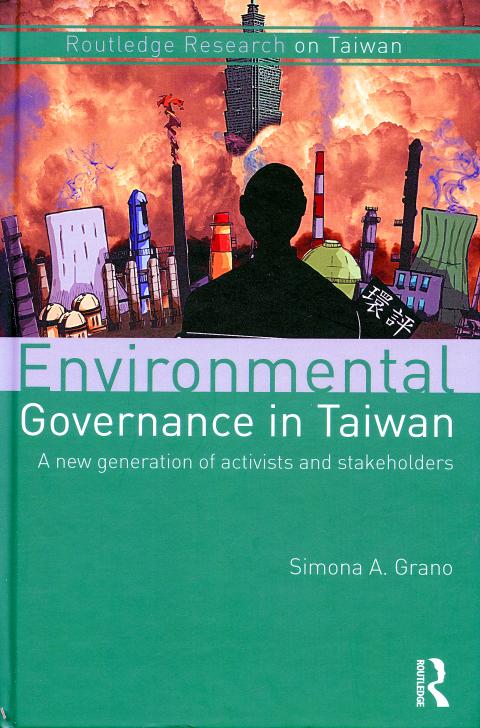
Photo courtesy of Dafydd Fell
For example, Moskowitz teaches a “Chinese-language popular culture” class despite his work being more focused on Taiwan. He doesn’t mind, however, because the broadened scope attracts more students, thus introducing Taiwan to a wider audience. Moskowitz also shows how a tiny nation like Taiwan is able to influence the popular culture of China.
“I think someone is more likely to take the class in the broader category, then often they fall in love with Taiwan,” he says. He adds that teaching a Taiwan-only class is becoming increasingly difficult as schools become more tuition-driven and focused on attracting larger classes.
While there may be fewer opportunities to work on Taiwan compared to when China was closed off, Moskowitz agrees on Fell’s “golden age” statement.
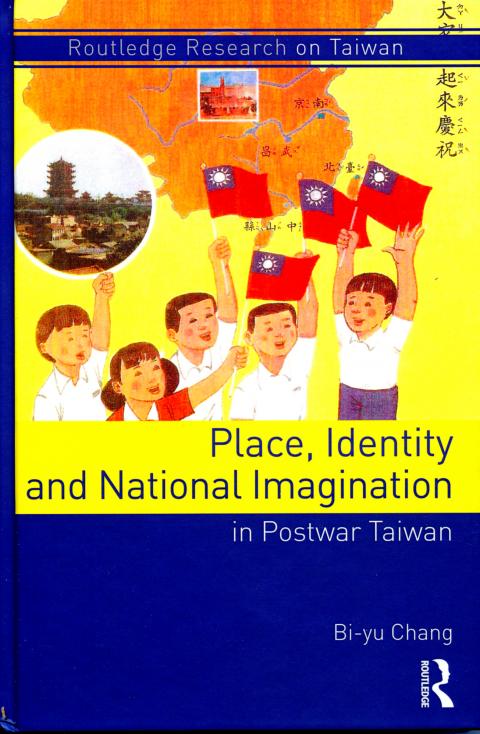
Photo courtesy of Dafydd Fell
“The difference is that people studying Taiwan are truly interested in Taiwan for being Taiwan’s sake instead of using it as a window into China,” he says. “To that, we can see Taiwan Studies being in a golden age.”
On the other hand, growing interest in China due to its rapid rise in power has benefited Taiwan studies, Fell says.
“Many scholars who work on Taiwan have been able to get tenured jobs whereby most of their teaching is on China or East Asia while their research is mainly on Taiwan,” Fell says.
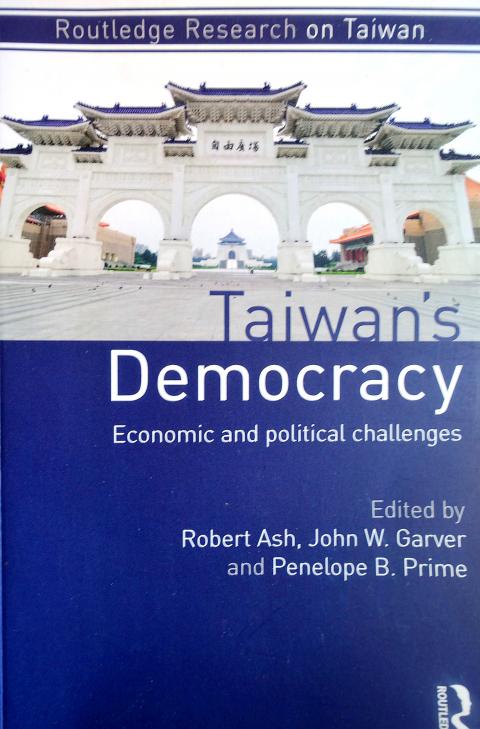
Photo courtesy of Dafydd Fell
“The jobs available are always going to be in China Studies, and to some degree I’m sympathetic with that,” Moskowitz says. “If you know nothing about Asia, and you go to a bookstore and pick up a book, would it be about China or Taiwan?”
Lee says that while interest in Taiwan Studies is still comparatively low compared to its larger neighbors, the field will only keep growing as more students graduate from these relatively new Taiwan Studies programs and enter other institutions.
Fell says the process of democratization is what makes Taiwan attractive, not only because it is an intrinsically interesting topic, but also because it allows for the kind of academic freedom that is lacking in China. Social movements, migration, identity, gender equality and advancements in LGBTQ rights are also areas of interest.
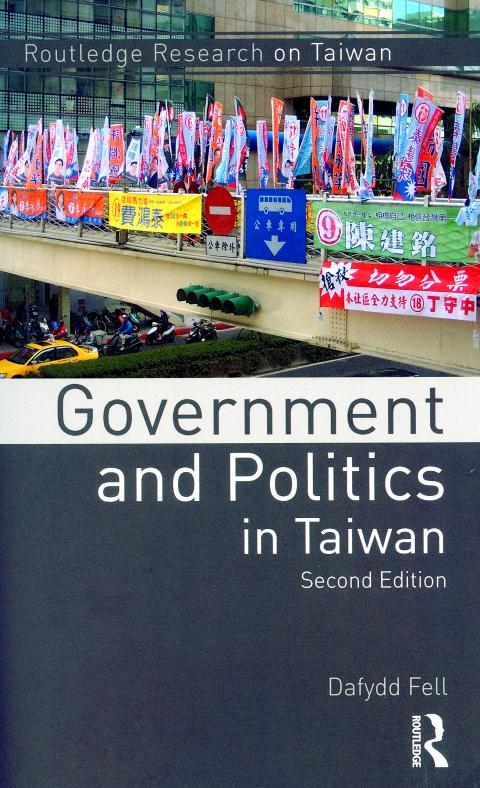
Photo courtesy of Dafydd Fell
LINKS TO CHINA?
Moskowitz stresses that when studying Taiwan, one should not deny its Chinese cultural heritage, “which is not to say Taiwan is China,” he adds. It is Taiwan’s mixture of Chinese, Japanese, Aboriginal and now Southeast Asian influences that set it apart.
“The part of the problem with this conversation is that people assume that if you’re looking at these connections, you’re declaring an allegiance to the one-China policy. It doesn’t have to be the case. You’re just acknowledging the cultural legacy, just like people acknowledge the Japanese legacy.”
Lee says it’s a constant debate in the field whether Taiwan studies should be linked or delinked from Chinese studies. Part of the issue is that in order to promote Taiwan to people who aren’t familiar with the region, China often has to be in the conversation.
“How do you sell Taiwan?” she asks. “How do you promote Taiwan with an understanding that Taiwan is different from China and has different attractions? In that case, you have to explain to the students what China is as well.”
Lee says that the only way is to demonstrate Taiwan’s distinct identity — introducing, for example, Taiwan’s popular elections, social movements and other elements that are nonexistent in China. Last year Lee put together an LGBTQ event and invited same-sex marriage proponent and Democratic Progressive Party (DPP) legislator Yu Mei-nu (尤美女) and two activists to share their stories at the school, not only attracting people interested in such issues but also highlighting how Taiwan is different from China.
“This is what Taiwan is. It doesn’t matter what you say. The Chinese are getting more demanding, but there’s nothing they could dispute or complain to our university about,” she says.
Fell has not received any proposals from Chinese scholars, but he says that he would not rule out a such a publication as long as it is of high academic quality. He’s more baffled that there hasn’t been any proposals from Japan, where there is a vibrant Taiwan Studies community.
CHALLENGES AND HOPES
While the book series doesn’t involve any government support, Fell says external funding, especially from the Ministry of Foreign Affairs, Ministry of Education and the Chiang Ching-kuo Foundation, has contributed significantly to the growth of the field. And unlike Confucius Institutes, a Chinese educational organization that promotes Chinese language and culture, Fell says that Taiwanese sponsors generally respect academic freedom.
Lee says her program needs all the support it can get to put on events, but she points out that sponsors cannot intervene if a conference happens to carry topics critical of Taiwan.
“So far there have been no problems, but [if they intervene] we will lose the argument that we are democratic and that we are different from China,” she says.
Moskowitz says that the government has been focusing on political science and allocating fewer resources to promoting, for example, pop culture studies, which he believes can garner more general interest.
“One of the areas that my students, who know nothing about Asia, are really interested in is pop culture,” he says.
Fell is surprised that there haven’t been more proposals for books on film, and also hopes that someone writes about the media and social media, especially on its political implications. He hopes to publish more books that are also palatable for non-academic audiences, but as an academic publisher, Routledge is focused more on library sales and thus the books will be hard to find in Taipei.
Lee says that there isn’t much of a push to promote their Taiwan Studies to non-academics in Taiwan, as it simply isn’t their market — although she’s launched a blog, Taiwan Insight, about a variety of Taiwan topics.
“Our market is external. Our purpose is to let Taiwan be seen,” she says.

In the March 9 edition of the Taipei Times a piece by Ninon Godefroy ran with the headine “The quiet, gentle rhythm of Taiwan.” It started with the line “Taiwan is a small, humble place. There is no Eiffel Tower, no pyramids — no singular attraction that draws the world’s attention.” I laughed out loud at that. This was out of no disrespect for the author or the piece, which made some interesting analogies and good points about how both Din Tai Fung’s and Taiwan Semiconductor Manufacturing Co’s (TSMC, 台積電) meticulous attention to detail and quality are not quite up to

It is one of the more remarkable facts of Taiwan history that it was never occupied or claimed by any of the numerous kingdoms of southern China — Han or otherwise — that lay just across the water from it. None of their brilliant ministers ever discovered that Taiwan was a “core interest” of the state whose annexation was “inevitable.” As Paul Kua notes in an excellent monograph laying out how the Portuguese gave Taiwan the name “Formosa,” the first Europeans to express an interest in occupying Taiwan were the Spanish. Tonio Andrade in his seminal work, How Taiwan Became Chinese,

April 21 to April 27 Hsieh Er’s (謝娥) political fortunes were rising fast after she got out of jail and joined the Chinese Nationalist Party (KMT) in December 1945. Not only did she hold key positions in various committees, she was elected the only woman on the Taipei City Council and headed to Nanjing in 1946 as the sole Taiwanese female representative to the National Constituent Assembly. With the support of first lady Soong May-ling (宋美齡), she started the Taipei Women’s Association and Taiwan Provincial Women’s Association, where she

Mongolian influencer Anudari Daarya looks effortlessly glamorous and carefree in her social media posts — but the classically trained pianist’s road to acceptance as a transgender artist has been anything but easy. She is one of a growing number of Mongolian LGBTQ youth challenging stereotypes and fighting for acceptance through media representation in the socially conservative country. LGBTQ Mongolians often hide their identities from their employers and colleagues for fear of discrimination, with a survey by the non-profit LGBT Centre Mongolia showing that only 20 percent of people felt comfortable coming out at work. Daarya, 25, said she has faced discrimination since she